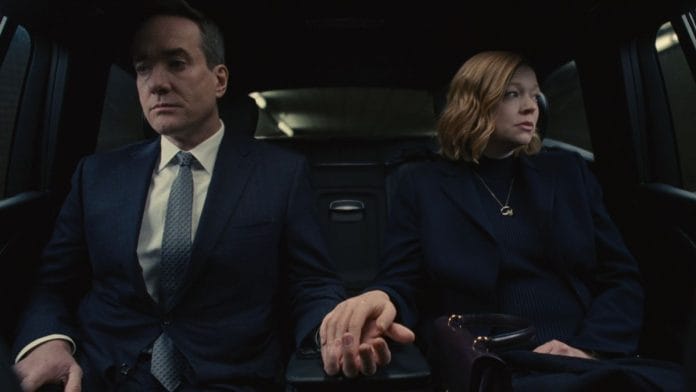It is often said that plays are an actor’s medium while films are a director’s.
Succession, HBO’s corporate Game Of Thrones, often hailed as a modern-day Shakespearean drama, proves that it is, in fact, the writer who’s the undefeated king of the play as well as the motion picture.
Makers Mark Mylod and Jesse Armstrong repeatedly tilt the scales in the last season of their adrenaline-laced show, untying the knots of complexly crafted characters with fast-paced, witty dialogues.
Based in New York, the series focuses on the war of succession between the children of ageing media baron Logan Roy (Brian Cox), who owns the fictional company Waystar. Of Logan’s four children, the eldest, Connor (Alan Ruck), is uninterested in taking over his father’s empire. But Kendall (Jeremy Strong), Roman (Kieran Culkin), and Shiv (Sarah Snook), his children from a second wife, haven’t renounced Waystar like their eldest brother, going all out to stake their claim in one of America’s biggest businesses.
Masterful writing, theatrical performances
The writers gave us a sweet little window into an adorable family meeting of the Roys, which seldom happened on the show earlier. There was no killing, no backstabbing, no human stools—just a wholesome family outing where the siblings were interrupted by a cranky mother. It was also the first time they had collectively agreed on who will take the throne.
Then, they swiftly but coherently captured corporate tension at Waystar, jotting down a predictable climax but approaching it in a commendably different way, perfectly concluding their titular characters’ journey. Complex yet obvious, it makes one pull their hair while watching the show.
The acting and the direction were not any lesser. Strong, Snook, and Culkin perfectly embodied the three parentless puppies with an unquenchable thirst for power.
In the last episode, there are two contrasting scenes featuring the siblings. One where the three of them are bonding, and one where they are having a fight people don’t generally come back from. Snook, Culkin, and Strong go after each other in Emmy-worthy performances, creating tension that goes straight from the screen to the heart. The fact that this comes less than 10 minutes after a rare, sweet scene shows the grip these actors have on their roles. It’s like they have lived their character’s life all their lives.
Next, we see Tom Wambsgans (Matthew Macfadyen) man up from a garden snake to King Cobra. Even though his screen time in the last two episodes is limited, his role never diminishes. Unlike the siblings who think they’re entitled to succeeding the world, Wambsgans works quietly, patiently, and for the first time in the entirety of the series, without any desperation to please.
It’s not surprising when people compare succession to a play. Mylod and Armstrong ensure that there are only two cameras on set so that acting performances aren’t blocked. Mylod prefers one take wonders, and often without cuts. This gives the show a kind of authenticity that’s hard to find. In effect, all titular actors are skin-deep in their characters and actually put up theatrical performances.
But everything is secondary to the sharp and pithy dialogues, which, when coupled with Succession’s masterful plot progression, create magic on screen. For instance, they successfully bring out Kendall’s emotional conflict, and also captured the filth of Tom and Shiv’s relationship. Moreover, in some scenes, like in the penultimate episode where Roman jumps into a protesting crowd, the imagery is so powerful that dialogues are simply not needed – testimony to a gripping show’s clever, near-perfect writing.
Through the Roy’s family conflict, writers also capture the feelings of privileged children with abusive parents, how they think they’re moving forward but are, in reality, always moving two steps back. At the same time, they’re rich, emotionally stunted narcissistic billionaires who don’t think they need to grow. They are not serious people.
It’s a shame that Hollywood writers have had to protest to demand decent pay. Writing drives TV shows, and Succession is the finest example.
(Edited by Zoya Bhatti)






